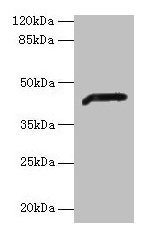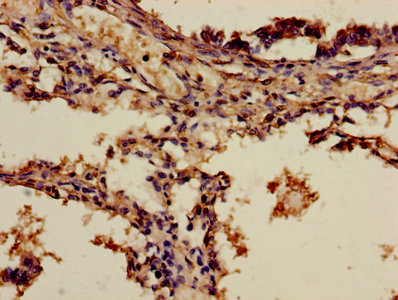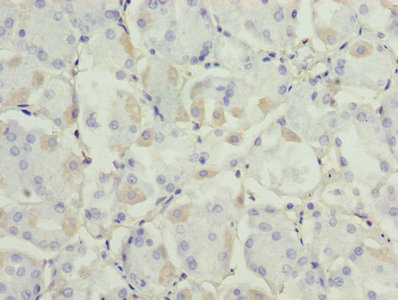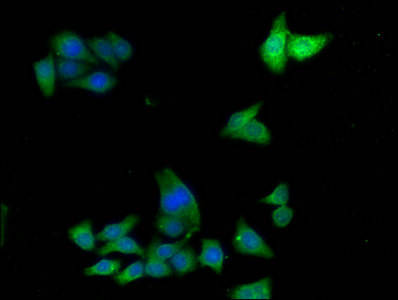The ADH7 antibody is a polyclonal antibody that is generated in rabbits by immunizing with recombinant human Alcohol dehydrogenase class 4 mu/sigma chain protein (1-386aa). The primary function of the ADH7 polyclonal antibody is to recognize and bind to the ADH7 protein in samples from both human and mouse species.
The ADH7 antibody is protein G purified, with a purity greater than 95%, which ensures its high quality and reliability. This antibody has been tested for use in a range of applications, including ELISA, WB, IHC, and IF. Its availability in different applications allows for the investigation of the expression and localization of ADH7 in different tissues and cells in human and mouse samples.










